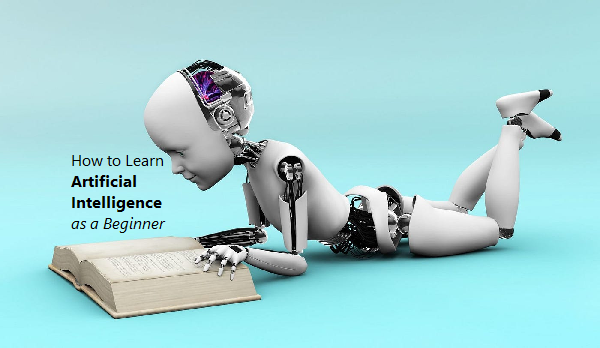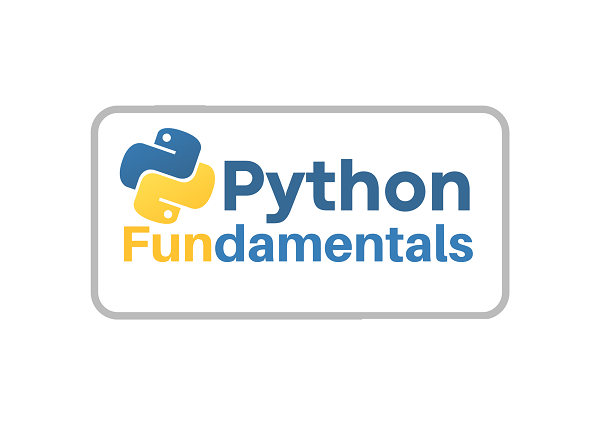How to learn Artificial Intelligence as a Beginner in 2023
Learning artificial intelligence is a long-term investment in your career, but it can be a challenging and rewarding journey. By following these best practices and continually improving your skills, you can become proficient in AI and make a significant impact in your chosen field. Remember to stay motivated, collaborate with others, and keep up-to-date with the latest developments in the field to achieve your goals.
Artificial Intelligence (AI) is transforming the world
we live in, and the demand for AI experts is rapidly increasing. If you are
interested in learning about AI and becoming an expert in this field, you might
be wondering where to start. This article will provide a comprehensive guide on
how to learn Artificial Intelligence, including the skills you need, the
resources available, and the best practices to follow.
Why Learn Artificial Intelligence?
Artificial Intelligence
has become a fundamental part of our daily lives, from virtual assistants like
Siri and Alexa to self-driving cars and smart home devices. AI is also used in
various industries, including healthcare, finance, education, and
transportation. As AI technology advances, the demand for skilled AI professionals is growing, and many companies are looking to hire AI experts.
Learning Artificial
Intelligence can open up a world of career opportunities, including data
scientist, machine learning engineer, AI researcher, and many more. Moreover,
learning AI can also help you understand how AI technology works and its impact
on society, allowing you to develop informed opinions and contribute to the
ethical and responsible development of AI.
Skills Required for Learning Artificial Intelligence
Artificial Intelligence
(AI) is a rapidly growing field that requires a wide range of skills and
expertise. Learning AI can be challenging, but having the right skills can make
the process much easier. Before you start learning Artificial Intelligence,
there are some basic skills you need to have:
Mathematics: AI is built on mathematical principles and requires a
strong foundation in mathematics. Key areas of math that are essential for AI
include linear algebra, calculus, statistics, and probability theory.
Programming: Programming is another crucial skill for AI. AI
systems are built using programming languages such as Python, Java, C++, and
MATLAB. It is important to have a good understanding of these languages, as
well as algorithms and data structures.
Data Science: Data science is a critical skill for AI. Machine learning algorithms rely on large datasets, and it is essential to understand
how to collect, clean, and analyze data. Knowledge of data mining, data
visualization, and data analysis techniques is also important.
Critical Thinking: Critical thinking skills are essential for AI because
it involves problem-solving, decision-making, and pattern recognition. AI
involves making decisions based on data, and critical thinking is necessary to
understand the implications of these decisions.
Domain Expertise: AI applications are often built to solve specific
problems in a particular domain. Therefore, it is important to have expertise
in the domain where AI will be applied. For example, if you are interested in
building AI applications for healthcare, you need to have expertise in the
healthcare domain.
Communication: Communication skills are essential for AI
professionals. AI projects often involve collaboration with other
professionals, such as data scientists, programmers, and business analysts.
Effective communication is necessary to ensure that everyone is working towards
the same goal and understands each other's perspectives.
Curiosity: Finally, AI requires a lot of curiosity and a desire
to learn. AI is a rapidly evolving field, and it is important to stay
up-to-date with the latest developments and be willing to explore new
approaches and techniques.
To sum up, learning AI
requires a combination of skills, including mathematics, programming, data
science, critical thinking, domain expertise, communication, and curiosity.
Developing these skills requires dedication and effort, but with the right
mindset and approach, anyone can learn AI and contribute to this exciting
field.
Resources for Learning Artificial Intelligence
Online Courses: There are many online courses available that can
teach you the fundamentals of AI. These courses cover topics such as machine
learning, deep learning, natural language processing, and computer vision.
Books: There are many excellent books on AI from basics to
advanced.
Blogs and Websites: There are many blogs and websites dedicated to AI and
machine learning. These sites offer tutorials, articles, and resources for
learning AI.
Online Communities: There are many online communities where you can
connect with other AI enthusiasts and experts, ask questions, and share
knowledge.
Best Practices for Learning Artificial Intelligence
Start with the Basics: Start with the basics of AI, including the concepts
and terminology used in the field. This will help you build a solid foundation
and understand the more complex concepts.
Practice, Practice,
Practice: AI is a hands-on field,
and you need to practice implementing algorithms and models. Try to work on
real-world projects to gain practical experience.
Stay Up-to-Date: AI is a rapidly evolving field, and you need to stay
up-to-date with the latest developments. To stay up to date, it is important to
continuously learn and stay informed about the latest developments. Follow
blogs, attend conferences and meet-ups, and read research papers to stay
informed about the latest trends and breakthroughs in the field.
Another way to stay
updated is to follow prominent AI researchers, influencers, and organizations
on social media platforms like Twitter and LinkedIn. You can also attend AI
conferences, workshops, and webinars to hear from experts in the field and
learn about the latest trends and innovations.
Collaborate and Network: Collaboration and networking with other AI professionals
can help you learn and grow faster. Join online communities, attend local
meetups and conferences, and participate in hackathons and competitions to
connect with other AI enthusiasts.
Choose the Right Learning
Resources: There are many online
courses, tutorials, and books available for learning AI. Choose resources that
are appropriate for your skill level and learning style.
Focus on the
Fundamentals: AI is a complex field,
and it can be easy to get lost in the details. However, it's important to focus
on the fundamentals, including mathematics, statistics, and programming, to
build a strong understanding of the field.
Apply AI to Real-World
Problems: To become proficient in
AI, you need to apply what you've learned to real-world problems. Look for
opportunities to work on projects or internships that allow you to apply your
skills in a practical setting.
As you gain knowledge and
skills in AI, it is important to apply them to real-world projects. This not
only helps you to solidify your understanding of the concepts but also gives
you hands-on experience in working with AI tools and technologies.
One effective way to gain
practical experience is to participate in AI hackathons and challenges. These
events offer opportunities to work on real-world problems and compete with
other AI enthusiasts. You can also contribute to open-source AI projects or
collaborate with others on AI research projects.
Stay Motivated: Learning AI can be a challenging and time-consuming
process, but it's important to stay motivated and persevere. Set achievable
goals, take breaks when needed, and celebrate your accomplishments along the
way.
Conclusion
Learning artificial
intelligence is a long-term investment in your career, but it can be a
challenging and rewarding journey. By following these best practices and
continually improving your skills, you can become proficient in AI and make a
significant impact in your chosen field. Remember to stay motivated,
collaborate with others, and keep up-to-date with the latest developments in
the field to achieve your goals.




Comments
Post a Comment